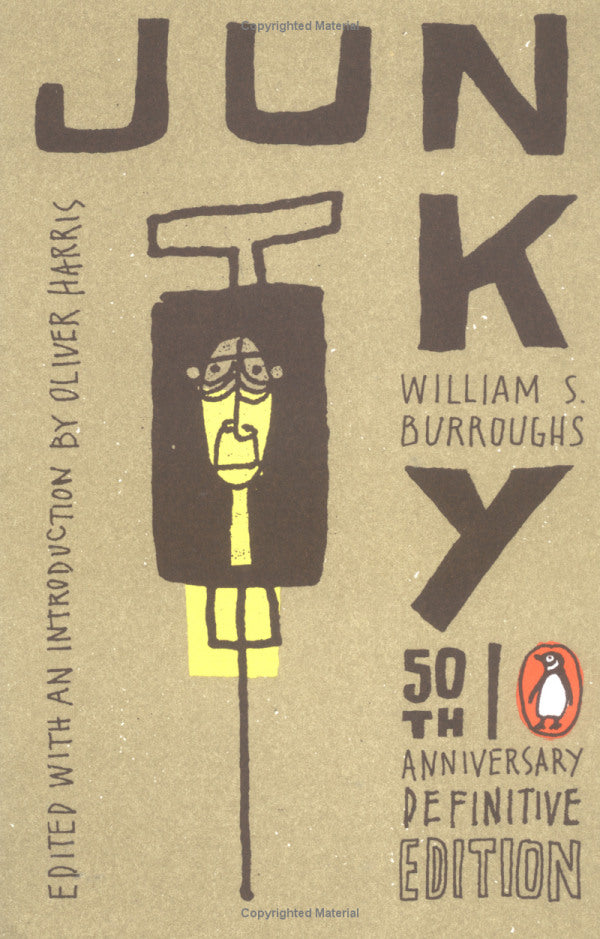This title is currently out of stock. Leave us your email address, we’d let you know when it’s in stock again!
-

A note on book covers: while we do our best to ensure the accuracy of cover images, ISBNs may at times be reused for different editions of the same title which may hence appear as a different cover.
Junky
Junky
Couldn't load pickup availability
Before his 1959 breakthrough, Naked Lunch, an unknown William S. Burroughs wrote Junky, his first novel. It is a candid eyewitness account of times and places that are now long gone, an unvarnished field report from the American post-war underground.
Unafraid to portray himself in 1953 as a confirmed member of two socially-despised under classes (a narcotics addict and a homosexual), Burroughs was writing as a trained anthropologist when he unapologetically described a way of life - in New York, New Orleans, and Mexico City - that by the 1940s was already demonized by the artificial anti-drug hysteria of an opportunistic bureaucracy and a cynical, prostrate media.
For this fiftieth-anniversary edition, eminent Burroughs scholar Oliver Harris has painstakingly recreated the author's original text, word by word, from archival typescripts and places the book's contents against a lively historical background in a comprehensive introduction. Here as well, for the first time, are Burroughs' own unpublished introduction and an entire omitted chapter, along with many “lost” passages, as well as auxiliary texts by Allen Ginsberg and others.
Details of Book
Related Collections:
A note on book covers: while we do our best to ensure the accuracy of cover images, ISBNs may at times be reused for different editions of the same title which may hence appear as a different cover.

-
One Line Summary
Raw, profound glimpse into underground life and addiction.
-
Who is this book for?
If you're curious about the roots of beat literature and counterculture, Junky offers an unfiltered look into a world often hidden from the mainstream. Burroughs's candid storytelling reveals more than just addiction—it explores the complexities of society's outcasts with genuine empathy and sharp insight. This edition, enriched with archival material and unpublished passages, is a treasure for anyone wanting a deeper understanding of that pivotal era.

